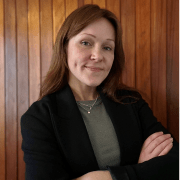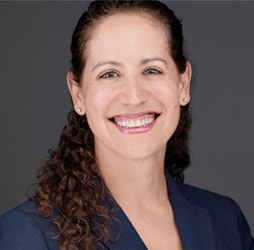Our 2024–2026 strategy, ‘Accelerating a planet positive future’, propels us into a transformative journey, where sustainable project choices play a pivotal role. This initiative, embedding innovative, circular and life cycle thinking into every aspect of our projects, empowers us to support our clients in tackling sustainability challenges head on, both for themselves and for the world. Addressing climate change is one such challenge, demanding extensive decarbonization efforts across our clients' entire value chains to fulfill Paris Agreement commitments. Embracing a life cycle approach to carbon — known as whole of life carbon — proves to be indispensable in this endeavor.
The oncoming hurdles
Currently, the built environment accounts for over a third of final energy consumption and consumes almost 60% of the world's raw materials1.
Still, development is expected to continue. Projections indicate that each month over the next four decades, the built environment will expand by an amount equivalent to the size of New York City2. This growth is aimed at meeting various development needs, like updating existing structures, creating new ones and implementing sustainable and resilience practices.
And despite strides in renewable energy and technologies, the construction sector's heavy reliance on carbon-intensive materials — cement, iron and steel — persists, driving emissions and perpetuating environmental and social repercussions across material value chains.
Pivoting to a holistic approach
Our challenge lies in striking a delicate balance between accommodating continued development and swiftly progressing toward net zero and a planet positive future. In this landscape, whole of life carbon (WoLC) emerges as a pivotal lever to transform the built environment — an approach endorsed by prominent industry organizations and numerous global regulations and rating systems3.
WoLC encompasses all greenhouse gasses sources generated throughout the life cycle of a built or natural asset, including emissions embedded within value chains. And when incorporated into our projects, it allows us to grasp the true impacts of our choices, develop effective solutions and drive the transition away from extractive, high-impact consumption patterns toward regenerative, circular alternatives for deep decarbonization.
The WoLC approach in action
At Arcadis, we’re collaborating with clients across sectors to achieve their sustainability goals by placing this holistic and performance-based approach at the heart of our solutions and operations.
In the US, the application of WoLC in fixed media PFAS treatment systems led to an impressive 80% reduction in carbon impact along with significant cost savings for our client through strategic material loop closures and seamless integration of renewable energy source. Our dike reinforcement project in the Netherlands achieved a remarkable 18,750 tons of carbon savings by focusing on material choices, circularity potentials, transport efficiency, utilization of eco-friendly equipment, and product longevity considerations. In a Madrid office upgrade, annual energy use was slashed by 55% by enhancing the facade and rooftop with integrated photovoltaics, while retaining the existing structure saved an additional 8,937 metric tons of carbon. And our manufacturing facility expansion in South Carolina yielded an annual reduction of 136 tons of operational carbon emissions and further reduced in over 8,000 tons of carbon savings from selecting regionally available low carbon material options. These projects alone save near equivalent to planting a million trees from material choices.

Charting our course ahead
'Sustainable Project Choices’ is one of three key areas of our 2024–2026 strategy. As the urgency to mitigate and adapt to climate change escalates, we’re embracing this core strategy to effectively address sustainability challenges for both our clients and the communities we serve around the world.
Through our commitment to life cycle thinking, we’ve also partnered with the World Business Council for Sustainable Development to formally endorse and actively contribute to the Built Environment Market Transformation Action Agenda and Roadmap to Nature Positive: Foundations for the built environment.
Our very own Marjolijn Versteegden, Global Solution Director of Net Zero Facilities Smart Sustainable Buildings, is also joining the MIPIM 2024 ‘Road to Zero Stage’ to amplify the power of life cycle thinking in driving circularity and overall sustainability.

We’re joining forces with clients, peers and partners toward a decarbonized built environment by 2050, sparking conversations on broader impact areas to promote transparency in material value chains and fast-track a planet positive future.









